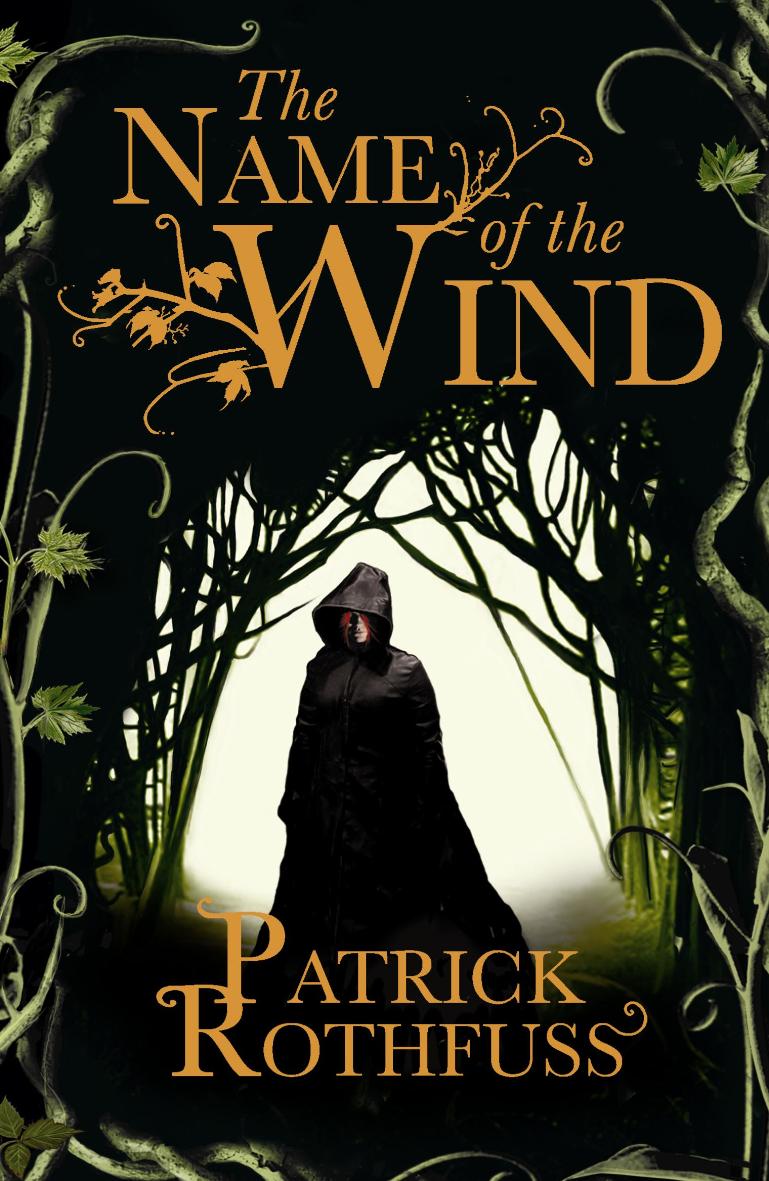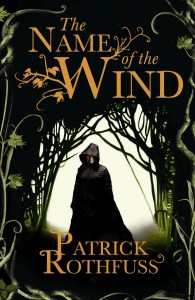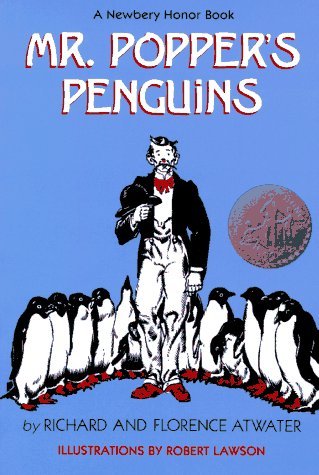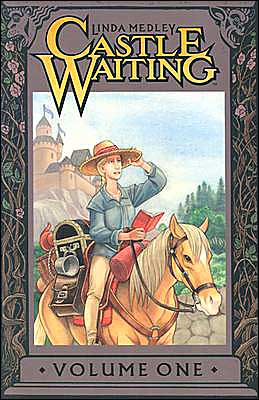
Review: The Name of the Wind, by Patrick Rothfuss
MY NAME IS KVOTHE.
I have stolen princesses back from sleeping barrow kings. I burned down the town of Trebon. I have spent the night with Felurian and left with both my sanity and my life. I was expelled from the University at a younger age than most people are allowed in. I tread paths by moonlight that others fear to speak of during day. I have talked to Gods, loved women, and written songs that made the minstrels weep.
You may have heard of me.
Kvothe (pronounced “quothe”) is a young man who became a legend. Unfortunately, legends have a way of changing, and Kvothe’s turning from a legendary hero to a legendary villain. It’s not his fault, but legends are like a giant game of broken telephone, and details were getting changed by accident that threw him in a less-than-favourable light. In an effort to preserve the truth, a scribe convinces Kvothe to set the story down in his own words, and it’s pretty good he did, ’cause otherwise we wouldn’t get to read this awesome book.
The book starts with Kvothe as a young man – probably in his mid-twenties or so. After the first couple of chapters, the story switches to flashback mode as Kvothe tells his story, starting when he’s eleven and ending when he’s fifteen. It describes the major players in his life, the things he did, and (in some cases), the things he didn’t do. Besides the flashback, which makes up the main story, a side story seems to be developing that takes place outside of the flashbacks. But besides the story, we get to see a lot of Kvothe’s character, and that, in my opinion, is just as good as the plot.
Kvothe’s actually a pretty cool guy. He spares no detail – he doesn’t gloss over the bad things he did. That’s pretty refreshing, I think, because Kvothe fully admits to being stupid, spiteful, and a bit of a bastard at times. At other times, he’s sweet, caring, and lovable. In other words, he’s exactly what a typical teenager is. How his personality develops and changes through time, and the different bits of his personality we get to see, is quite fun.
Besides the characterisation, the story has several other things going for it, as well. The story is gripping, the writing engaging. It’s hard to put down, and, while it moves at a slow pace, it all adds to Kvothe’s character and the overarching plot. Rothfuss gives enough information to keep readers engaged while also making them ask questions, and read for the answers. Rothfuss avoids clichés – in fact, a couple of times Kvothe starts off saying, “If this were a story, I would…” only to end up saying what he did instead. It’s a bit refreshing, especially considering a lot of the latest fantasy books have employed quite a lot of clichés.
Nevertheless, for all this book’s high points, there are some odd things about it: namely, the metaphors, which in some cases (mostly in dialogue, though that’s 90% of the book) are quite unusual. Case in point: “He touched her, and she felt like a bell that had just been struck for the first time.” In other words, she feels round, brassy, in pain, and like she’s been stuck on the back of a bus driving at high speeds down a country rode full of potholes. The rest of the book is more than enough to make up for these, though, and for the most part the metaphors pass unnoticed.
As for the ending, well, it didn’t wrap things up – but then again, it wasn’t supposed to. Kvothe leaves off telling his story whenever he feels it’s getting too late to go on talking, meaning we still feel like we’re in the middle of the story. The same goes for its sequal, The Wise Man’s Fear. With the third and final book not coming out until Spring, this is distinctly unfair. I have a feeling that when the end does come, though, it’ll be well worth the wait.
Overall rating: 5/5




5 Comments
Pingback:
jonathan2point0
I really liked the two Rothfuss books. I almost started reading them all over again after finishing them because there are a lot of loose threads and mysteries that can be figured out or speculated upon. This is the book I find myself recommending to everybody, because its approachable for people that aren’t into epic or high fantasy, and has something for everyone. I loaned a copy to a relative at Christmas with the proclamation that these were the best books I’ve read in years.
ARamone
Yeah, the books are really in-depth. The only way to get the whole story would be to read it at least twice, because so many things come up again and get revisited…they’re definitely great, one of my favourite series.
Grace
I almost bought this book last time I was at the bookstore. I think I’ll definitely have to read it at some point soon; it looks intriguing. I like multi-dimensional protagonists in fantasy who sometimes do behave badly, rather than the stereotypical “good guy,” so I think this would be a neat read.
ARamone
Yeah, the all-or-nothing good/bad guy is quite tiresome. Rothfuss breaks the mould in that every character Kvothe knows well is well-rounded (people he knows less well a little less so, but that’s normal). I definitely recommend you read it :)